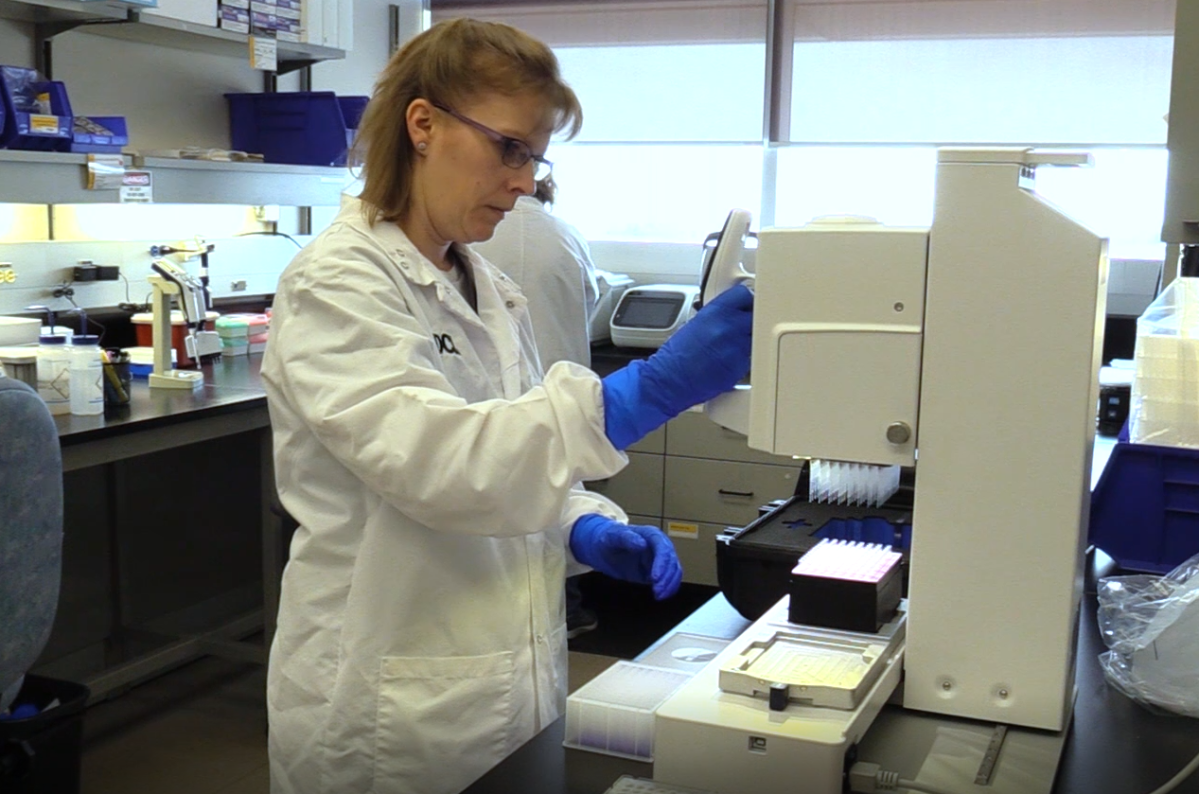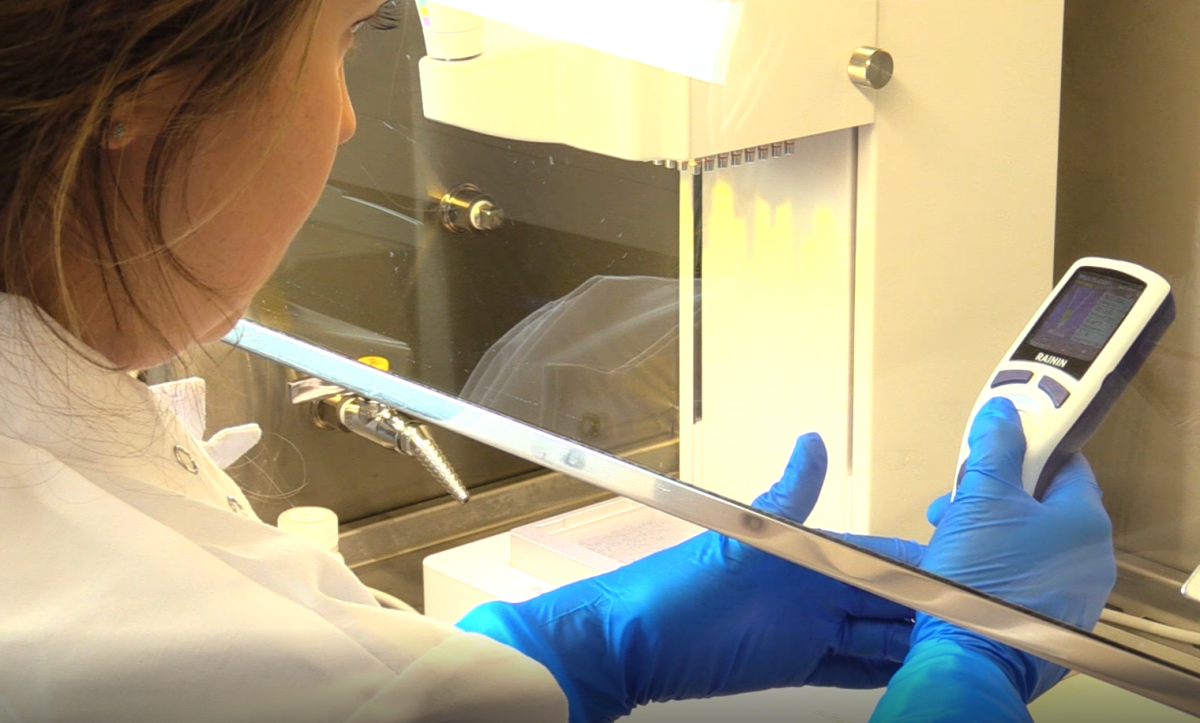Over 34,000 Saskatchewan residents have been tested for COVID-19 since the pandemic began, with the majority of those tests having been sent to the Roy Romanow Provincial Laboratory in Regina.

The lab is currently operating 12 hours a day, seven days a week.
Dr. Jessica Minion is a medical microbiologist, and the clinical lead of public health laboratories in the province. According to her, testing has taken over most operations at the lab.
“It is very busy,” said Minion. “A lot of our routine work has gone to the sides.”
The number of staff working in the lab changes on a daily basis, depending on how many tests need to be processed on a given day.
“Overall, we’ve got more than 30 people that are trained to help with the testing,” Minion explained. “We’re continuing to look at whether we need to expand that.”
The first people to lay hands on a test are the accessioning staff. This is when the specimen is assessed for information that will be entered into the lab’s systems.
“We have a whole bunch of staff that are able to do the data entry,” she said.
The specimen is then sent upstairs to the molecular microbiology lab, where it is subject to a polymerase chain reaction (PCR) test.

Get breaking National news
“There’s two different steps for these molecular tests,” explained Minion. “The first is the extraction, and the second is the PCR that amplifies and detects the actual virus.”
When the virus is detected, staff are instructed to immediately pick up the phone and notify the local public health office. If a separate clinician ordered that test, they are also notified.
According to Minion, the dynamic at the lab has changed since positive tests started being seen in the province.
“We’re all living through this as well, so a lot of people in the lab feel the same anxiety and stress that the rest of the population faces with the pandemic and transmission in their community.”
Despite these worries, the team spirit has yet to falter among staff members.
“People are drawing together,” Minion said. “They have a common goal and a common purpose, and people are very dedicated to get these lab results out as fast as they can.”
Currently, the lab is getting between 500 to 800 tests per day, but staff are capable of processing up to 1,500.
“The limiting factor for that is generally supplies, which are in high demand across the world.”
Minion said there is currently no shortage of supplies at the Roy Romanow Provincial Laboratory, but it is a concern for the future.
“We have many weeks of stockpile available,” she said. “But this is something we worry about.”
Minion doesn’t anticipate a slow-down in testing any time soon.
“We’re still wanting to have high volumes of testing to be alert, and looking out for those individuals who do become symptomatic.”
Questions about COVID-19? Here are some things you need to know:
Health officials caution against all international travel. Returning travellers are legally obligated to self-isolate for 14 days, beginning March 26, in case they develop symptoms and to prevent spreading the virus to others. Some provinces and territories have also implemented additional recommendations or enforcement measures to ensure those returning to the area self-isolate.
Symptoms can include fever, cough and difficulty breathing — very similar to a cold or flu. Some people can develop a more severe illness. People most at risk of this include older adults and people with severe chronic medical conditions like heart, lung or kidney disease. If you develop symptoms, contact public health authorities.
To prevent the virus from spreading, experts recommend frequent handwashing and coughing into your sleeve. They also recommend minimizing contact with others, staying home as much as possible and maintaining a distance of two metres from other people if you go out.
For full COVID-19 coverage from Global News, click here.















Comments
Want to discuss? Please read our Commenting Policy first.